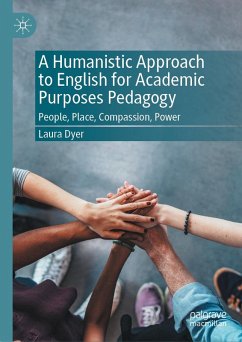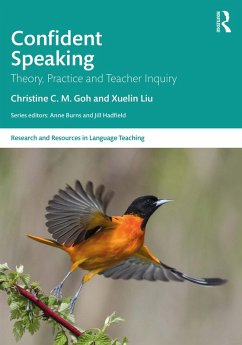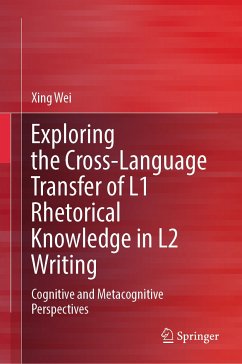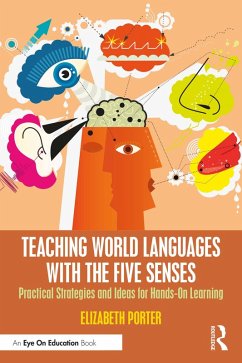
Speaking English as a Second Language (eBook, PDF)
Learners' Problems and Coping Strategies
Redaktion: Jamshidnejad, Alireza
Versandkostenfrei!
Sofort per Download lieferbar
112,95 €
inkl. MwSt.
Weitere Ausgaben:

PAYBACK Punkte
56 °P sammeln!
This book focuses on understanding the process of problem construction in oral communication in foreign language contexts, examining how speakers of English as a second language approach issues in oral communication, as well as the strategies they employ to overcome these difficulties. Using theories of general communication, and in particular current approaches to L2 oral communication and strategies in interactional discourse, the authors construct a theoretical framework for defining, identifying and classifying learners' problems and coping strategies when speaking English as a second or f...
This book focuses on understanding the process of problem construction in oral communication in foreign language contexts, examining how speakers of English as a second language approach issues in oral communication, as well as the strategies they employ to overcome these difficulties. Using theories of general communication, and in particular current approaches to L2 oral communication and strategies in interactional discourse, the authors construct a theoretical framework for defining, identifying and classifying learners' problems and coping strategies when speaking English as a second or foreign language. The book offers a coherent process-oriented description of the complex and multidimensional nature and typology of oral interaction problems in EFL contexts, and it will be of interest to practitioners, teachers, researchers, students, and curriculum designers in Applied Linguistics and TESOL.
Dieser Download kann aus rechtlichen Gründen nur mit Rechnungsadresse in A, B, BG, CY, CZ, D, DK, EW, E, FIN, F, GR, HR, H, IRL, I, LT, L, LR, M, NL, PL, P, R, S, SLO, SK ausgeliefert werden.












